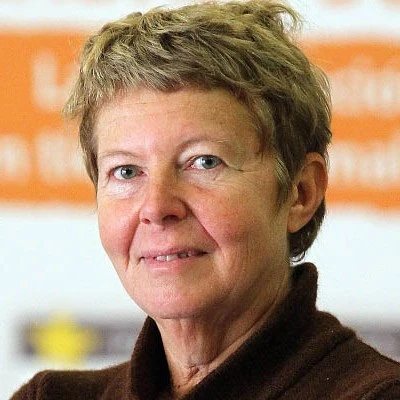Install this application on your home screen for quick and easy access when you’re on the go.
Just tap then “Add to Home Screen”
Speaker
Donatella della Porta Scuola Normale Superiore, Florence
Chair
Susana Salgado University of Lisbon
In this House Series lecture, Donatella della Porta challenges the notion that crises dampen political participation among young people. She explores the meaning of generations in social movements, the self-identity of millennials, and their various forms of social commitment.
In academic and public debates, times of crisis have often been associated with the decline of political participation and civic engagement. The erosion of identity, solidarity, and ideology, along with the decline of certain types of informal networks and resources (money, power, and status), as well as the closing of political opportunities, are usually interpreted as factors that jeopardise political participation.
As these conditions have affected with particular virulence young people, expectations have spread about a disenchanted, frustrated, apathetic young cohort.
Challenging these expectations, today’s young people – despite suffering high levels of unemployment, precarisation, decrease in credit access, cuts in social services, changes in consumption patterns, and a grim outlook of their future as results of the economic crisis – are not in general apathetic, disengaged, anti-political, or removed from political participation. Rather, from the Arab Spring to Indignados, from the mobilisations for global justice to the anti-austerity protests, a new generation has joined contentious politics, developing, at least in part, creative ideas for a more just and inclusive society.
While not – or not completely – disengaging from institutional politics, critical young Europeans are developing alternative forms of social commitment, which enhance their engagement in public life and form part of a strategy for social change.
Focusing on progressive social movements, Donatella della Porta bridges concepts and theories from youth studies and social movement studies.
In this lecture. after presenting the theoretical model and research design, Donatella will offer a summary of results focusing on three main aspects:
All instalments in our House Series are FREE to attend and open to scholars from ECPR member and non-member institutions.
 Donatella della Porta is Professor of Political Science, Founding Dean of the Faculty of Political and Social Sciences and Director of the PhD programme in Political Science and Sociology at the Scuola Normale Superiore in Florence, where she also leads the Centre on Social Movement Studies (Cosmos).
Donatella della Porta is Professor of Political Science, Founding Dean of the Faculty of Political and Social Sciences and Director of the PhD programme in Political Science and Sociology at the Scuola Normale Superiore in Florence, where she also leads the Centre on Social Movement Studies (Cosmos).
She researches social movements, political violence, terrorism, corruption, the police and protest policing. She has directed a major ERC project Mobilizing for Democracy, on civil society participation in democratisation processes in Europe, the Middle East, Asia and Latin America.
In 2011, she was the recipient of the Mattei Dogan Foundation Prize for distinguished achievements in the field of political sociology. In 2021, she was honoured with the Research Award of the Alexander von Humboldt Stiftung for her lifetime research activities. In 2022, she was nominated International Honorary Member of the American Academy of Arts and Sciences.
Donatella is Honorary Doctor of the universities of Lausanne, Bucharest, Goteborg, Jyvaskyla and the University of the Peloponnese. She is the author or editor of 90 books, 150 journal articles and 150 contributions in edited volumes.

Susana Salgado is Principal Research Fellow at the Institute of Social Sciences, University of Lisbon, where she coordinates competitively funded research projects and teaches at the PhD programme in Comparative Politics. She had previously held positions at the New University of Lisbon and at the University of Oxford, as well as visiting positions in Brazil, Italy, and Australia.
Susana’s main research interests include political communication, democracy and democratisation processes, populism, as well as the impact of different types of media on democratic politics. Susana’s work has a strong interdisciplinary perspective, and her approaches to these topics have been mainly comparative and mixed methods.
The House Series is FREE to attend and open to scholars from all institutions. Registration is required and you'll need a My ECPR account to register.
To participate:
Loading news
Loading key dates